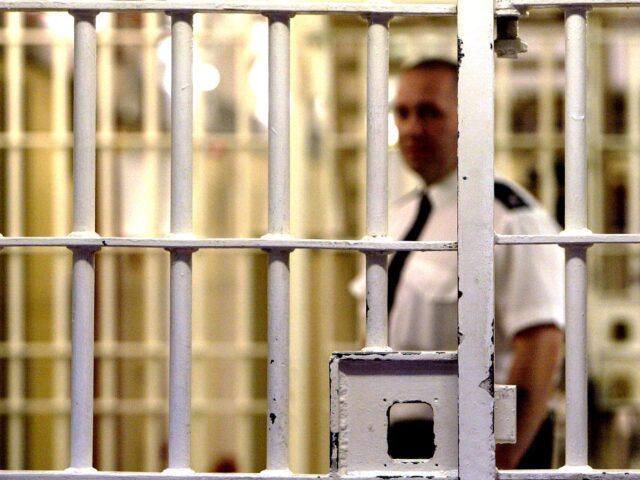British police forces have been told to arrest fewer people to reduce the strains on the prison system, sparking warnings that the move could endanger the public.
Internal advice from the National Police Chiefs’ Council (NPCC) has advised local police forces throughout Britain to suspend “non-priority arrests” and stop launching police operations which may result in a “large number of arrests”, the Times of London reported.
“Consideration is to be given to pausing non-priority arrests and any planned operations where large numbers of arrests may take place to ease the pressure within the criminal justice system,” the NPCC memo reportedly stated, adding: “Notwithstanding public protection remains a priority and a considered threat, harm and risk assessment is to be completed when considering any pause in police operations.”
The document said that an instance in which police should not incarcerate a suspect would include alleged burglarers if officers have yet to conduct on-the-scene forensics or have yet to review CCTV footage. It also suggested that forces hold off on non-intelligence operations which could be carried out at a later date.
On the other hand, the advice did urge police forces to continue prioritising large-scale protests and other public events, which the NPCC said should continue to be prioritised.
It comes amid warnings that male prisons may run out of space by June amid a soaring population attributed to continued judicial delays stemming from coronavirus lockdowns and barrister strikes.
In addition to the advice to arrest fewer criminals, the government extended an emergency early-release scheme for convicted criminals, which will reportedly see some prisoners let back onto the streets up to 70 days early starting Thursday.
While the measures will not apply to sex offenders or terrorists, some convicted of violent crimes, inducing domestic abuse, will be eligible for early release. The scheme will also apply to people convicted of burglary, fraud, and theft. The scheme, which originally allowed for the release of criminals 35 days before the end of their sentences, began in October, however, the Ministry of Justice has so far not disclosed to the public how many prisoners have been freed under the measure.
On top of that, the government has also approved a plan to allow court cases to be delayed, meaning that some suspects will be released on bail while their trials are delayed rather than being held in a cell, the BBC reported.
In response to the call from the National Police Chiefs’ Council to avoid making “non-priority arrests”, Scotland Yard said that it would not follow the advice. The Metropolitan Police’s Deputy Commissioner, Dame Lynne Owens, said that the Met would “never agree to pausing necessary arrests” and would “not hesitate” in requesting suspects be remanded in custody to ensure the safety of the public.
“We will always put protecting the public first and will never agree to pausing any necessary arrests. We will not hesitate to seek for suspects to be remanded in custody where the grounds for that are made out,” she said, adding: “We continue to work with the Government and other police services to ensure the safety of the public.”
In a separate letter to every chief constable in England and Wales, the NPCC warned that the emergency measures being implemented by the government to deal with the prison overcrowding “risks public safety”.
“We continue along with NPCC chair Gavin Stephens to make it clear in the strongest terms that the current situation is having an unsustainable operational impact on policing and the further deterioration in the situation, which HMPPS expect early next week, will further impact on operational policing and risks public safety,” the letter said.
“It is important for us to be able to show what those risks to public safety are.”
The disclosure comes amid a growing distrust of the police to do their job, with over half of the British public saying in a recent survey that they do not trust police forces to solve crimes while just over a quarter said that they expected police to make an arrest if they were burgled.

COMMENTS
Please let us know if you're having issues with commenting.